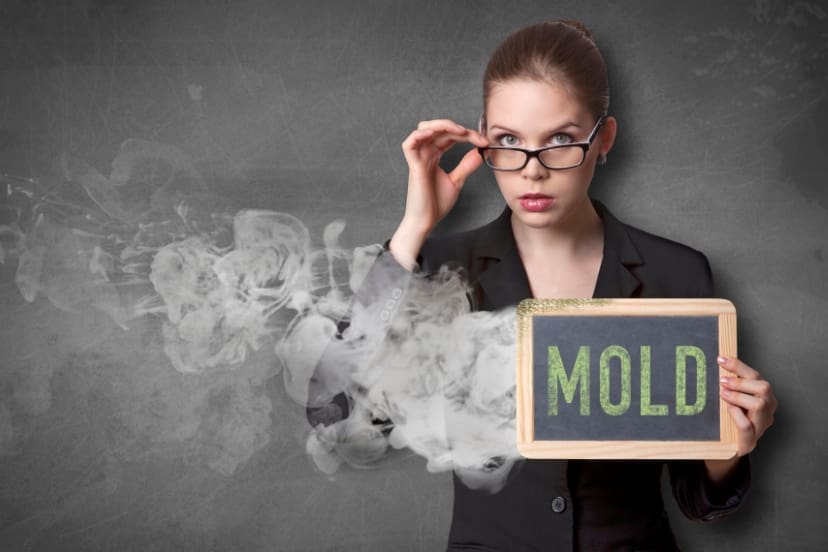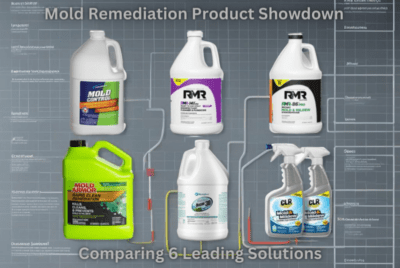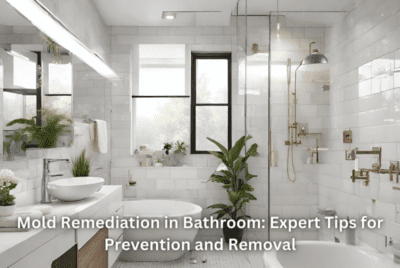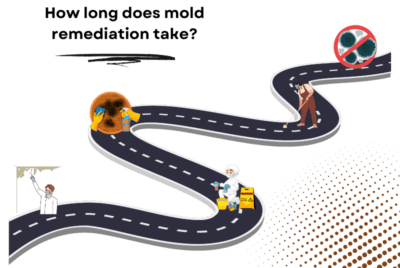Does Mold Smell? Understanding Mold Odors and Remediation
As an enthusiast and advisor in the field of mold remediation, I often come across the question, “Does mold smell?” Mold is a common issue in many homes and can pose serious health risks if not addressed promptly. In this article, I will delve into the topic of mold odor, helping you understand when it might be a cause for concern and providing valuable suggestions for dealing with it.
Understanding Mold
Before we dive into the subject of mold odor, it’s essential to understand what mold is and why it grows. Mold is a type of fungus that thrives in damp and humid environments. It reproduces through tiny spores that are invisible to the naked eye. There are various types of mold, with some being more harmful than others.
Does Mold Smell?
Now, let’s address the central question of this article: Does mold smell? The answer is yes, mold can indeed produce a distinct and unpleasant odor. This odor is often described as musty, earthy, or even reminiscent of dirty socks. However, it’s important to note that not all molds emit a noticeable smell.
Identifying Mold Odors
Recognizing the smell of mold is the first step in dealing with potential mold issues in your home. Mold odor is often most potent in areas where mold is actively growing, such as damp basements, bathrooms, or around leaky pipes. If you detect a persistent, musty odor in these areas, it may indicate a mold problem.
Health Implications
Mold isn’t just an aesthetic issue; it can have serious health implications. Prolonged exposure to mold spores can lead to respiratory problems, allergies, skin irritation, and even more severe health conditions in some individuals. This is why addressing mold promptly is crucial.
When Mold Smells Bad
There are situations where mold odor can be particularly concerning. If the smell is extremely strong or pungent, it could indicate a more extensive mold infestation. Additionally, if you or your family members experience unexplained health issues that seem to be exacerbated at home, mold could be a contributing factor.
Where to Look for Mold
To determine if mold is the source of the odor, you’ll need to do some detective work. Start by inspecting areas prone to moisture, such as basements, crawl spaces, and bathrooms. Look for visible signs of mold, such as dark spots or fuzzy growth on surfaces.
DIY Mold Detection
For those who are proactive, you can perform some DIY mold detection. You can purchase mold testing kits at your local hardware store, which can help identify the presence of mold spores in the air. However, keep in mind that these tests may not pinpoint the exact location of the mold growth.
The Importance of Professional Inspection
In many cases, it’s advisable to seek professional mold inspection services. Certified inspectors have the expertise and equipment to identify mold problems accurately. This is especially crucial if you suspect extensive mold growth or if you have health concerns related to mold exposure.
Preventive Measures
Preventing mold growth is always preferable to dealing with it after it becomes a problem. Here are some preventive measures you can take:
- Ensure proper ventilation in your home.
- Fix any leaks or water damage promptly.
- Maintain low indoor humidity levels.
- Use exhaust fans in bathrooms and kitchens.
- Clean and dry any wet or damp areas promptly.
Mold Removal
If you’ve confirmed the presence of mold, it’s essential to address it promptly and effectively. Mold remediation involves the removal of the mold source and the restoration of a healthy indoor environment. This typically includes removing contaminated materials and cleaning affected surfaces.
DIY vs. Professional Remediation
When it comes to mold remediation, you might wonder whether to tackle it yourself or hire professionals. While small, isolated cases of mold may be manageable for a DIY enthusiast, extensive mold infestations and hidden mold require professional intervention. Professionals have the necessary equipment and expertise to handle mold safely and effectively.
Safety Precautions
Regardless of whether you choose DIY or professional mold remediation, safety should be a top priority. Always wear protective gear, including gloves and a mask, when dealing with mold. Ensure proper ventilation in the area, and seal off the affected space to prevent mold spores from spreading to other parts of your home.
Conclusion
In conclusion, mold can indeed emit a distinct odor, and if you detect a musty smell in your home, it’s essential to investigate it promptly. Mold not only poses health risks but can also lead to structural damage if left untreated. Take preventive measures, inspect your home regularly, and don’t hesitate to seek professional assistance when needed to ensure a mold-free environment.
FAQs
1. Does mold smell like urine?
No, mold does not typically smell like urine. Mold tends to have a musty, earthy, or damp odor. If you detect a strong urine-like smell in your home, it may be caused by a different issue and should be investigated separately.
2. What does mold smell like in a house?
Mold in a house often emits a musty odor. This odor can vary in intensity depending on the extent of the mold infestation and the type of mold present. It is generally described as unpleasant and may resemble the scent of dirty socks or a damp basement.
3. Does mold smell sweet?
No, mold does not typically smell sweet. Mold odors are more commonly associated with earthy, musty, or damp smells. A sweet smell in your home may be unrelated to mold and should be investigated to identify its source.
4. Does mold smell like cat pee?
Mold does not typically smell like cat pee. The smell of cat urine has a distinct ammonia-like odor, while mold usually has a musty or earthy scent. If you detect an odor resembling cat pee, it’s essential to rule out other possible sources, such as pet accidents or cleaning products.
6. Can mold grow without producing a smell?
Yes, not all types of mold produce a noticeable odor. Some molds may grow silently, making regular inspections important.
7. What should I do if I suspect mold but can’t find the source of the smell?
In such cases, consider hiring a professional mold inspector to conduct a thorough assessment.




